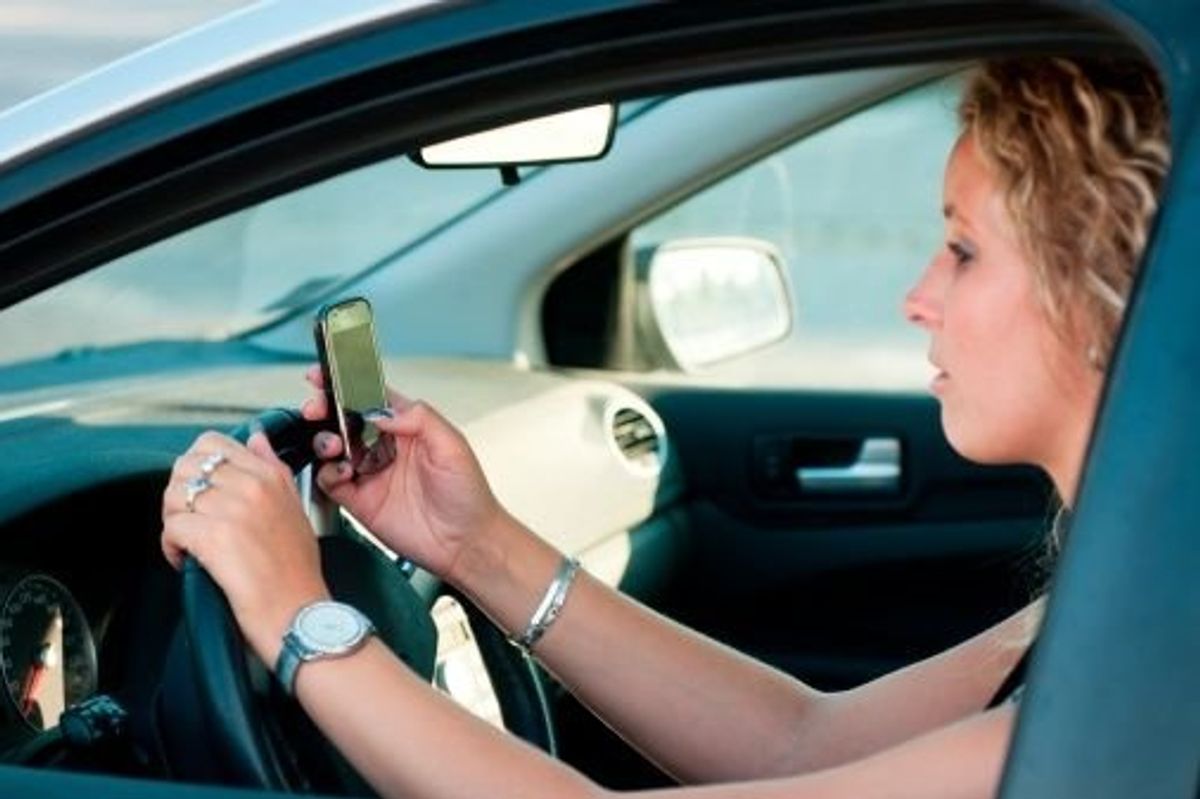

Learn about our editorial policies
Medically Reviewed
By now, you should know that texting and driving is a bad idea. If you get a text, it can wait for a response until you're safely out of the car. However, teenagers may not understand the dangers that texting while driving can pose. After all, many of them have grown up with technology always at the ready and are capable of sending a text in a matter of seconds.
To get your children to understand how dangerous texting while driving can be, you need to start a conversation.
Your kids may be going to driving schools to get their licenses, but chances are you'll be helping them learn to drive, too. Start the discussion by laying out some of the facts about the dangers of texting and driving. For example, according to the U.S. Centers for Disease Control and Prevention, more than nine people are killed and more than 1,060 people are injured each day in crashes in the United States that involve a distracted driver. Distracted driving includes things like talking on the phone, texting, reading emails and eating.
There are three main types of distraction: visual (not looking at the road), manual (not having your hands on the steering wheel) and cognitive (not thinking about driving). Texting requires all three, making it particularly dangerous. Drivers under the age of 20, who are relatively inexperienced drivers and are more likely to text, have the highest proportion of distraction-related fatal crashes.
When you get in the car with your children as they're learning to drive, ask them to hand over their phones or store them away out of sight and out of reach. That way, they won't be tempted to check who sent a text or who's trying to call while they're behind the wheel. Try to get them in the habit of keeping the phone in the glove compartment or in their bags. Putting the phone on silent or vibrate can also minimize distraction and temptation.
Many states have laws banning or restricting texting and talking on cell phones while driving. Some states have laws that specifically apply to teenagers. Make sure you know your state’s laws and explain them to your teen drivers. If they plan to travel in other states, find out what the laws are there. In some states even talking on a cell is an offense for teen drivers.
While giving clear instructions and emphasizing scary statistics and legal restrictions can be effective in getting your kids to understand the dangers of texting while driving, it's also crucial to set a good example yourself. Keep your phone out of sight in the car.
If you find that your teenage driver is texting while driving, despite your warnings, you may want to watch for other risky driving behaviors. Studies show that young drivers who text while driving are nearly twice as likely to ride with a driver who has been drinking and five times as likely to drink and drive than students who don’t text and drive.
You might be interested in





